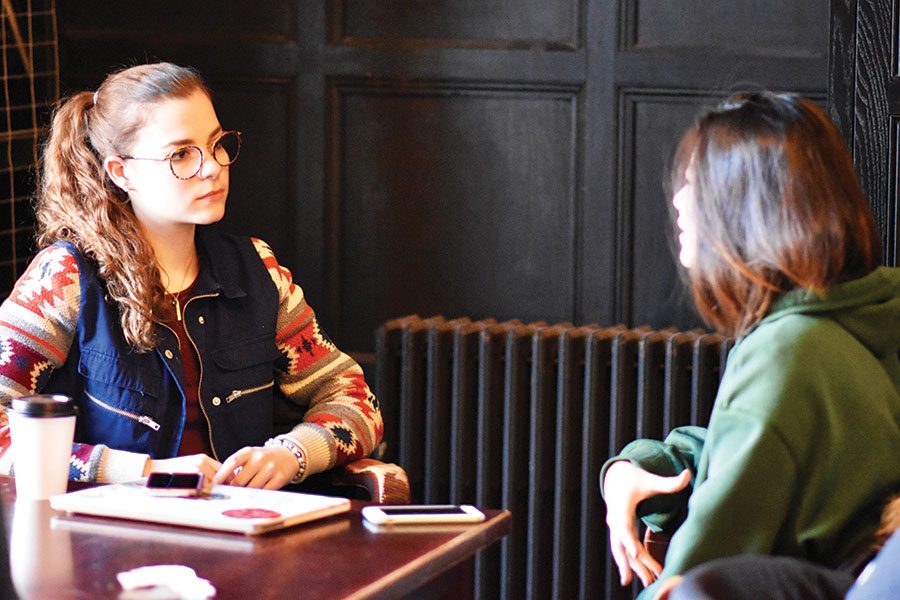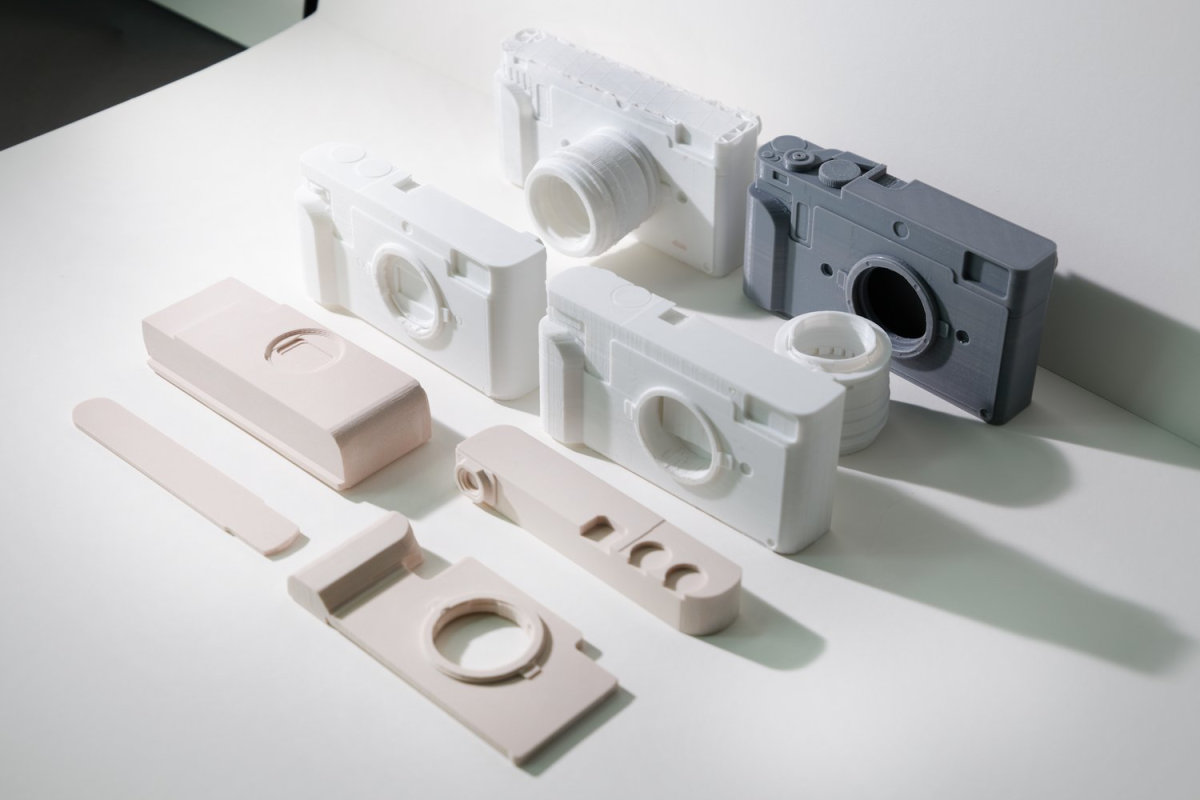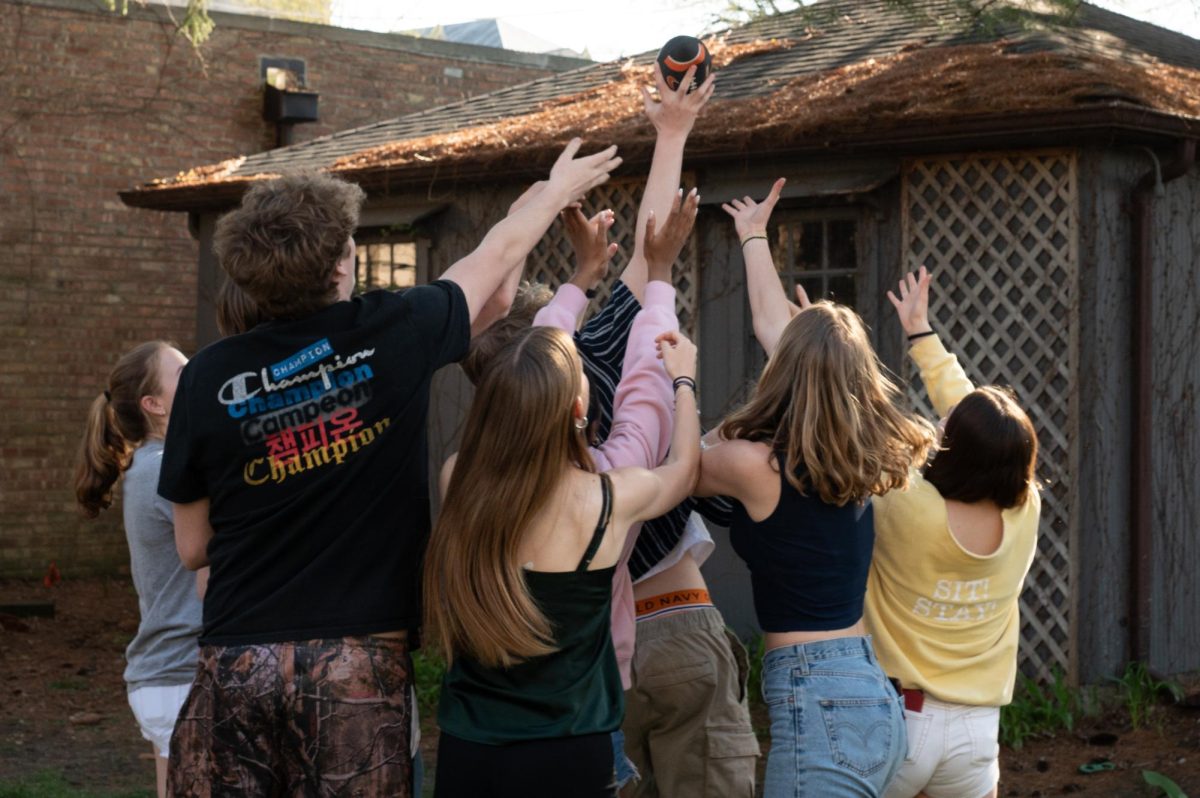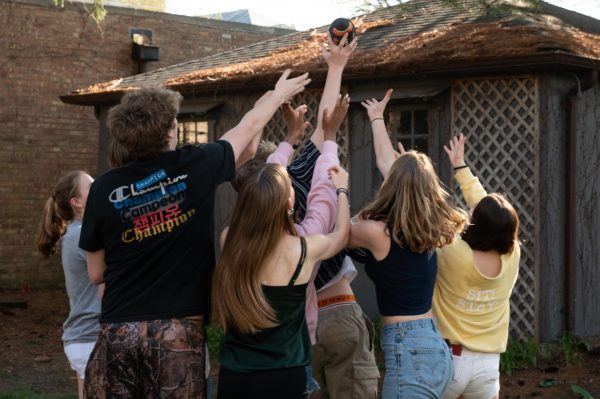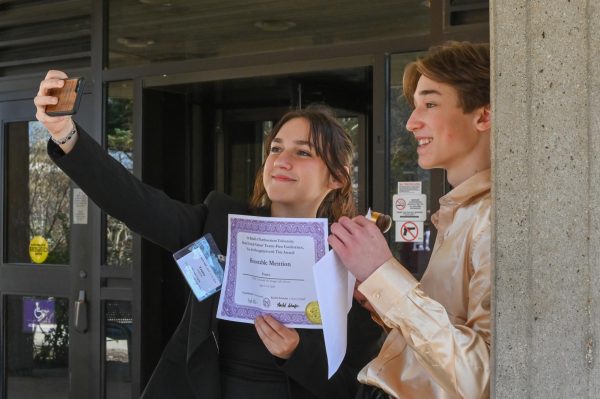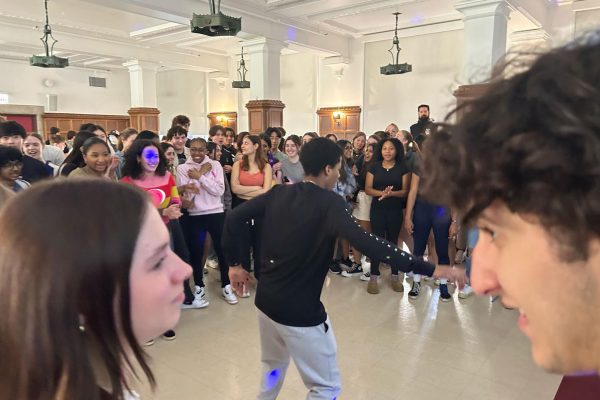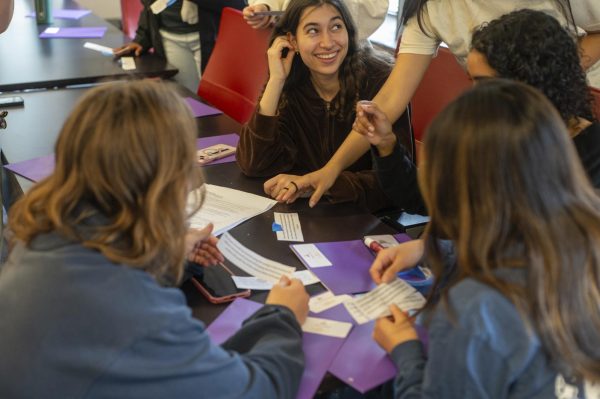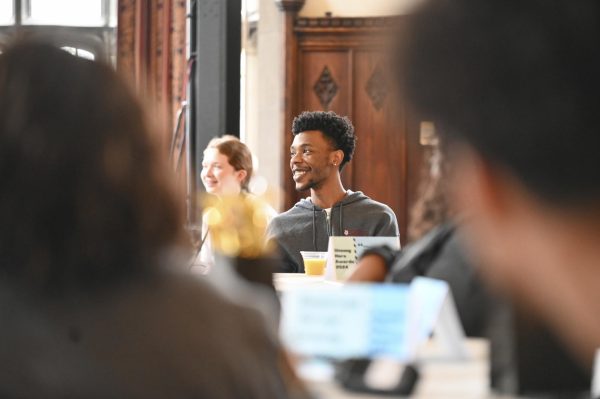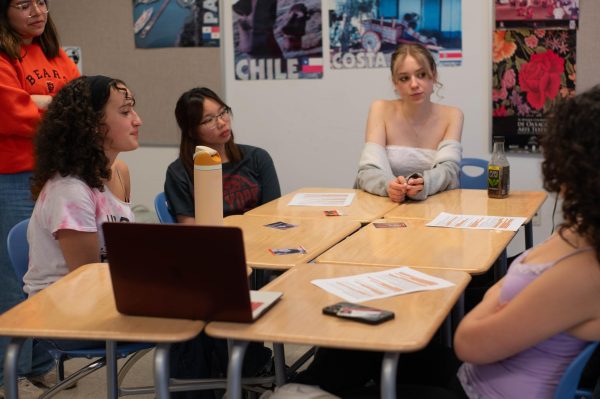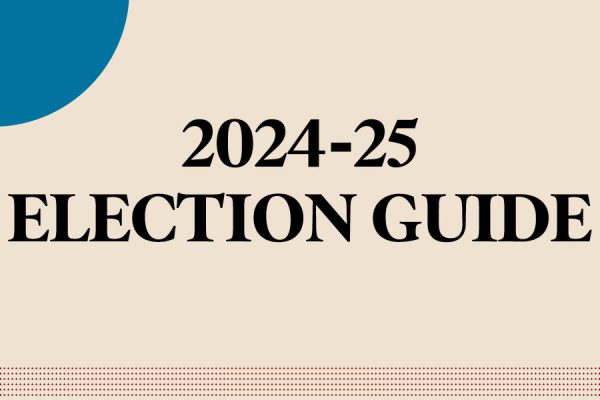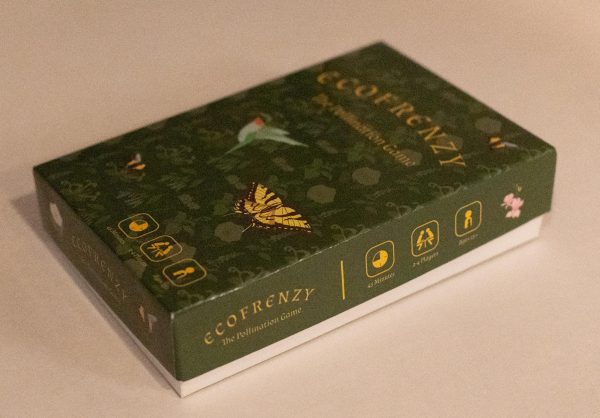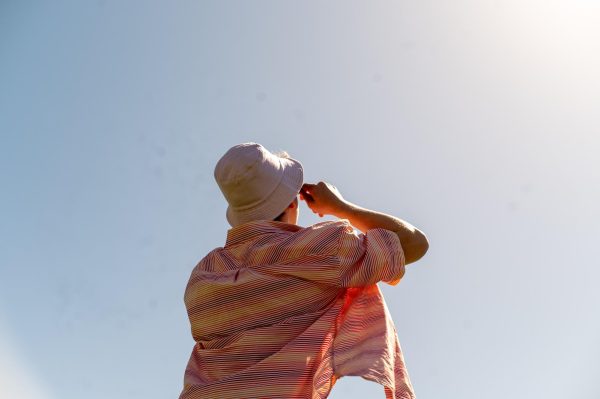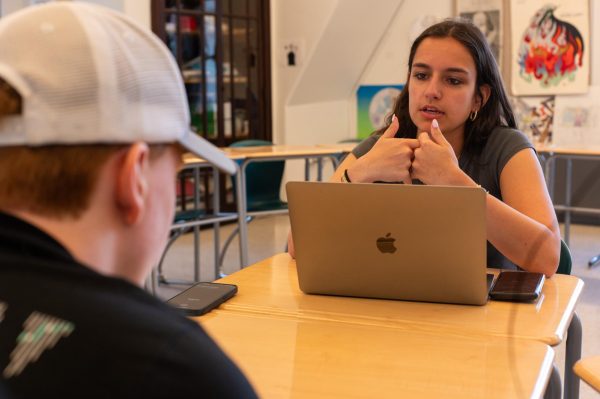Club promotes gender equity within STEM field
Aiming to inspire girls in STEM, sophomore starts national club
MUTUAL MOTIVATION. Sophomore Kaley Qin, right, talks with her mentor, Melis Ozkan, over coffee at Hallowed Grounds. The Women in STEM mentorship program is designed to provide girls with tangible inspiration for achieving their goals.
January 19, 2018
A new U-High club is promoting equity in science, technology, engineering and mathematics through mentorship and outreach programs.
Women in STEM, a national organization founded by sophomore Ananya Asthana, bridges the gap at U-High between social activism clubs and academic clubs by creating a space for women who are interested in STEM fields, to network both academically and socially.
WiSTEM is a nationwide collaboration that now has chapters at eight schools in four states: Illinois, Pennsylvania, Indiana and New York. Each chapter follows approximately the same agenda, which is set by Ananya, but adjusts the program to for what is needed in their community.
The organization has a mentorship program pairing high school students with college students in STEM fields, and the U-High chapter will host an outreach event for elementary school girls.
After joining both math and science team as a freshman, it became apparent to Ananya that there are few junior and senior girls in the clubs.
Ananya said, “Especially at Lab, where we do have a whole culture of social justice, you still see that disparity at junior and senior year. It’s pretty disheartening to see, especially as a freshman.”
Recognizing this disparity at U-High, Ananya began to learn more about the gender disparity issues in STEM fields, and wanted to find ways to empower girls to pursue STEM.
Sophomore club member Eve Grobman said, “I think for me it’s most important to cultivate a love of STEM and have younger women realize they have the potential to go into fields that they may not have thought they could of and I think it’s really important for me for everyone to either fulfill their dreams or realize their potential.”
Ananya said she was inspired to start the mentorship program after reflecting on the impact of guest speakers. While she appreciates the value of guest speakers, but she said high school girls can find it hard to relate to speakers.
“It seems really disconnected when you just see successful women because you don’t really know how they got there and it just seems like a story that you can’t really relate to but that you can aspire to,” Ananya said.
By pairing U-High students with University of Chicago students, Ananya hopes to better illuminate the path to a successful STEM career for high schoolers.
“It provides a tangible inspiration for high school girls to see what they can do in three or four years and where they could be,” Ananya said.
Natalie Bakwin, a sophomore who serves as club’s vice president and head of community service, said she especially values the independence of the mentorship program because it allows students the freedom to talk about about whatever they want with their mentor. This can range from helping each other through a discrimination they may have experienced or celebrating a successful achievement together.
WiSTEM members have been organizing an outreach event for elementary school students May 5.
Club members will invite students from schools across the south side of Chicago to participate in STEM workshops led by scientists, researchers and professors from the University of Chicago, Northwestern University, and University of Illinois at Chicago.
Ananya’s inspiration for the outreach program was to help young girls see their potential from an early age. She said that it is often recognized that gender disparity starts at a young age, but not a lot is done to prevent it from occurring early on.
Natalie said, “Empowering girls at a younger age is really the best way to effect change.”



